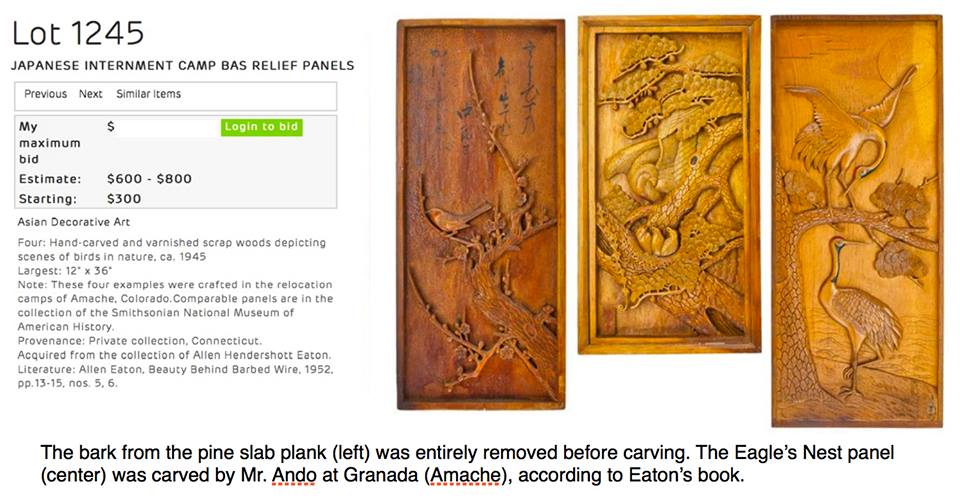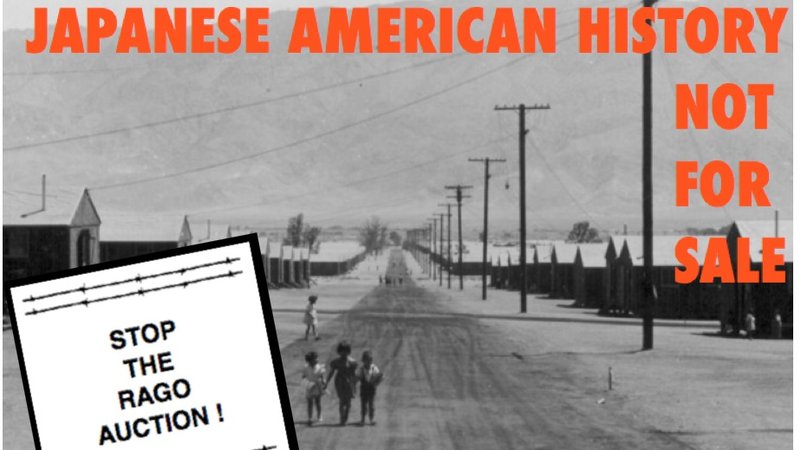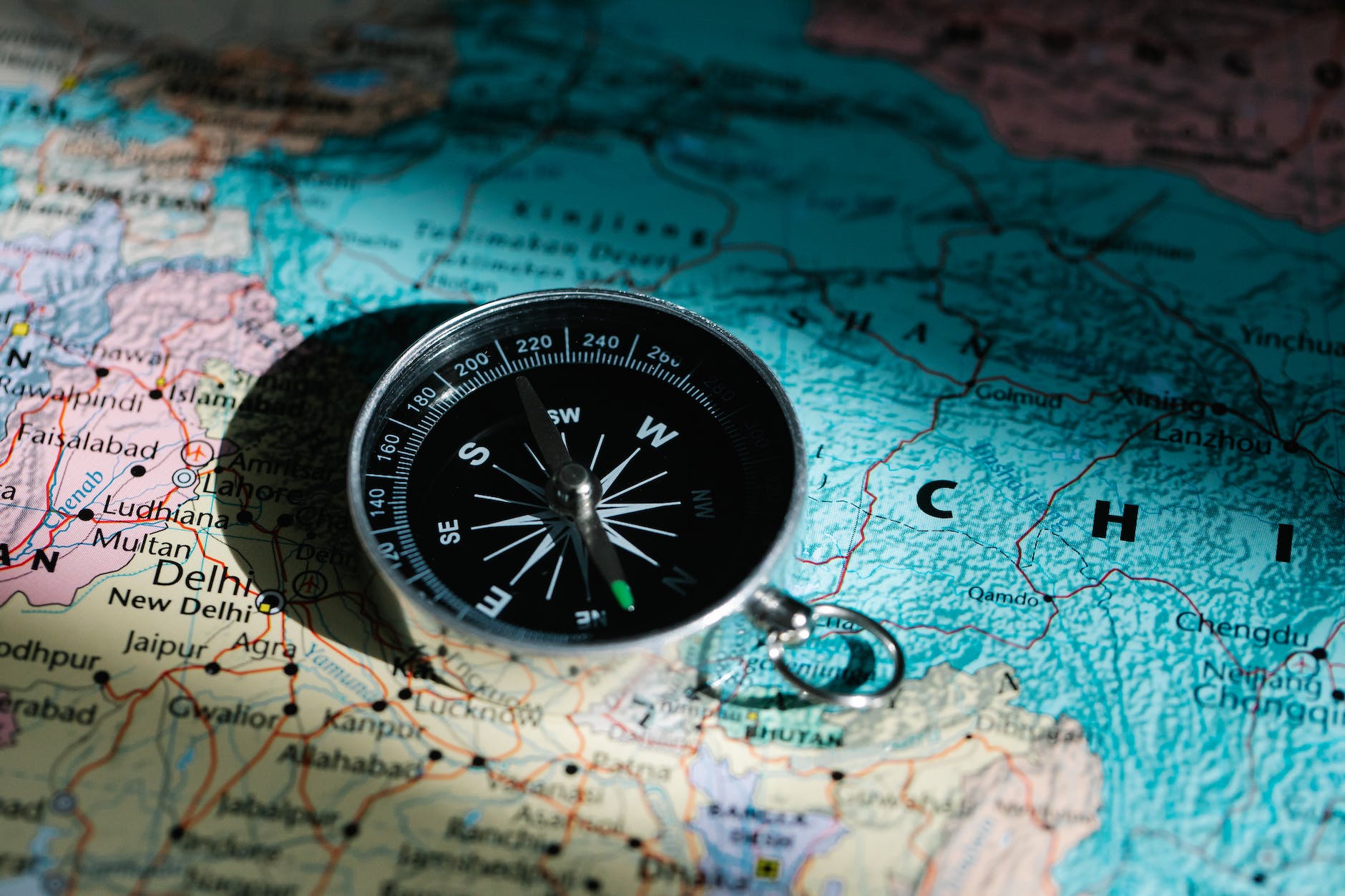(H/T @carltakei)
During the height of World War II, over a hundred thousand Japanese Americans were forcibly incarcerated in American concentration camps (see JACL’s “Power of Words” handbook) on the basis of their race alone. Removed to some of the harshest and most isolated regions of the continental United States and Hawaii, incarcerees — most of them United States citizens — were housed in makeshift huts behind barbed wire fences under the constant watch of armed guards.
The incarceration was politically popular, particularly among the West Coast’s White farmers who stood to gain (through short sale, or outright theft) the land and property Japanese American were forced to leave behind following the federal government’s removal order. However, at the time, few non-Japanese American citizens were also aware of the deplorable conditions of the camps that Japanese Americans were forced to endure over the course of this incarceration.
History documents the occasional artist or advocate who ventured to the camps, and — horrified by what they found — tried to bring to light the story of this American injustice.

Photographer Ansel Adams’ incredible photographs of the concentration camps remain one of the most powerful visual aids of camp life to date. Of the Manzanar camp that he photographed, Adams later said:
The purpose of my work was to show how these people, suffering under a great injustice, and loss of property, businesses and professions, had overcome the sense of defeat and dispair [sic] by building for themselves a vital community in an arid (but magnificent) environment.
Allen Hendershott Eaton was another American artist who was moved by his visit to the camps to speak out. A graduate of the University of Oregon, Eaton was a well-known advocate for American folk arts and a vocal anti-war opponent. After visiting Japanese American concentration camps including Heart Mountain, Eaton was inspired to collect folk art and artifacts from those incarcerated within, and create a public exhibition with the goal of raising awareness of the injustice of the camps.
Hundreds of artifacts were donated (Eaton says in his book documenting the items that they were given “to the point of embarrassment… but not to sell them”) by incarcerees to help make this public exhibit a reality. However, Eaton died in 1962 before he was able to take this collection public. Eaton’s collection of Japanese American incarceration artifacts was passed down to his daughter, and later willed to an associate of the family. That anonymous inheritor is now violating the original intention of the collection, and has put them up for sale and planning to line their own pockets with the profits.
On Friday April 17, this rare and historically important collection of 450 artifacts of Japanese American incarceration will be sold at auction to the highest bidder by Rago auction house.
It goes without saying that Japanese American survivors of World War II concentration camps are outraged by this planned auction. Several Japanese American survivors have found their own familial art, heirlooms, and photographs within the collection, and many — including the Mirikitani family who are the subject of the documentary “The Cats of Mirikitani” — have spoken out in opposition to the sale of their personal history. Poet Janice Mirikitani says she found a photograph of her cousin among the auction’s lots.
“I was shocked,” said Janice Mirikitani. “I was shocked to see this photograph of my cousin being auctioned off to somebody unknown for dollars.”
The Japanese American community has now launched a social media campaign hoping to halt Friday’s sale. In addition to creating a petition, organizers have been negotiating with Rago to attempt to find an alternative to the public auction. Organizers say the sale would not only break up this important collection, but would also monetize the life experiences of camp survivors instead of creating the public exhibit for which these artifacts were intended.
To add insult to injury, the collection’s consigner and Rago auction house have been remarkably insensitive in the face of this public outcry. Not only has the collection’s consigner publicly denounced the Japanese American community’s concerns as “bullying”, but Rago’s original plan for the sale’s open house event included a showing of “The Cats of Mirikitani” despite the Mirikitani family’s explicit objection to the sale (the event description no longer lists this documentary as scheduled, and a lecture on Japanese American incarceration also planned for the same event has been cancelled citing ethical conflicts).
Finally, in a shocking reinforcement of the same Perpetual Foreigner stereotype that was at the core of incarceration, Rago fails to identify the artifacts as related to Japanese American history. Instead, each lot is described as part of a collection related to “Japanese internment” and are being sold alongside porcelain and ceramic items from China, Tibet and Japan.
The collection’s consigner has stated that they are not in any financial position to donate the Japanese American incarceration artifacts. In an effort to keep this important collection of Japanese American incarceration artifacts intact, Heart Mountain Wyoming Foundation (HMWF) solicited pledged donations from the community earlier this week to offer a private sale of the entire collection of items. From their press release:
With the offer, the HMWF made its intent clear: if allowed to secure the collection through such an offer, the Foundation would work with interested and appropriate Japanese American institutions and organizations to reach consensus on where the items would be most appropriately preserved, housed and exhibited.
Organizers say HMWF also planned to make efforts to return artifacts to any families who wanted them back. HMWF approached Rago with an offer that they say far exceeded the estimated value of the entire collection.
Inexplicably, Rago turned the offer down.
The only possible rationale for doing so would be crass profit-making off of the pain of Japanese American camp survivors, by creating a bidding war between museums and Japanese American families seeking to reclaim personal artifacts. This will be facilitated by the format of the auction scheduled for Friday, which will collect bids anonymously so that bidders will not know if they are bidding against other families or museums.
Currently, a single major collection of Japanese American incarceration artifacts on public display is accessible to the public in a touring exhibit curated by the Smithsonian (corrected URL — thanks Konrad Ng, @konradng!). The 450 artifacts in the Eaton collection would be significant in preserving the history of Japanese American incarceration, and belongs in the hands of one of several organizations already dedicated to this purpose, not sold off for a profit.
Act Now! The Japanese American community is urging the public to join them in stopping Friday’s planned sale of these important historical artifacts. The public is urged to sign the Change.org petition immediately asking Rago to pull the collection from its scheduled auction on Friday, April 17th, and to tweet their support to #StopRago. Supporters are also urged to like this Facebook page to stay abreast of campaign updates.


